I am text block. Click edit button to change this text. Lorem ipsum dolor sit amet, consectetur adipiscing elit. Ut elit tellus, luctus nec ullamcorper mattis, pulvinar dapibus leo.
Maximize diesel engine performance and longevity with Chempol’s specialized diesel engine oil additives. Our potent formulations combat sludge buildup, reduce friction and boost oxidation stability, which helps extend oil life and protect essential parts. These additives boast superior wear protection and deliver smoother shifting operations while minimizing engine noise. Fortify your diesel engine against costly breakdowns and ensure peak efficiency – explore our comprehensive range of diesel engine oil additives today.
Showing all 7 results
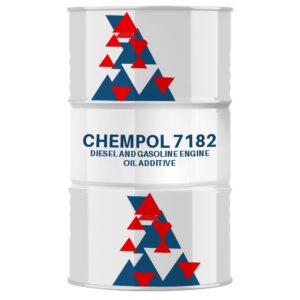
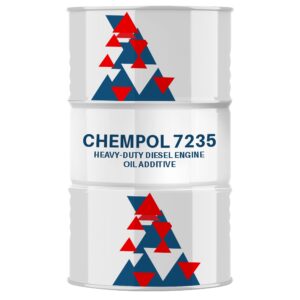
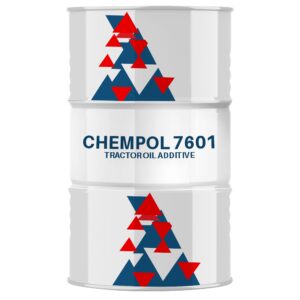
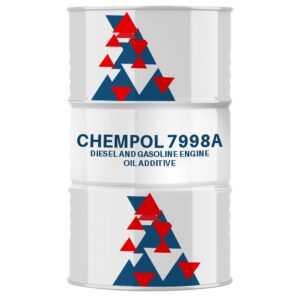
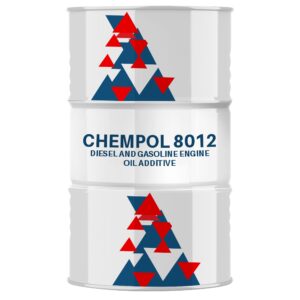
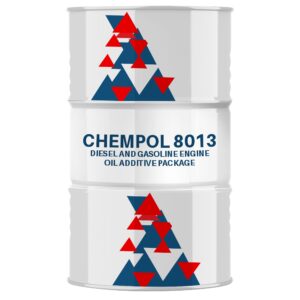
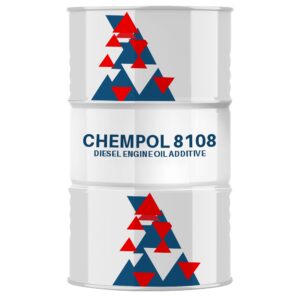
I am text block. Click edit button to change this text. Lorem ipsum dolor sit amet, consectetur adipiscing elit. Ut elit tellus, luctus nec ullamcorper mattis, pulvinar dapibus leo.
In the world of automotive engines, diesel engine oil additives have become increasingly popular. These additives are designed to enhance the performance and protection provided by diesel engine oils.
To better understand the description and the use of diesel engine oil additives for your automotive, the used terms are “treated fuel,” treated lube oil, and motor oil treatment. All these mean that lube oil and motor oil, respectively, include the number of additives in an effective amount. The opposite is untreated fuel, referring to when your lubricant has not been treated with the dose of additives.
To better understand the diesel engine oil additives, here is an example.
A test was done using an automobile with a turbo-diesel Mercedes engine. They added a fuel additive of 40 vol-% C400-C to the car’s tank along with the regular diesel fuel. The additive (1-ounce additive/15 gallons of diesel) they used was a mixture of different substances. After adding the additive and driving the car in city and highway conditions, they found that its mileage improved by 20-25%. This means that your automotive can go further on the same amount of fuel. The engine also ran more quietly and had power. It could go up hills more easily without needing to change gears. The exhaust from the car’s tailpipe didn’t produce any smoke. Another benefit was that once the car was started with the additives in the lubricant, it was easier to move on and start the engine in the future.
Here is a detailed explanation of common compounds that are tested and used extensively.
These are the polymers that help regulate the engine oil viscosity across a wide range of temperatures and varying degrees according to the locations. They help prevent the lubricants from becoming too thin at high temperatures or too thick at cold temperatures. Thus ensuring optimal lubrication throughout the operating time of engines.
These are responsible for keeping the engines clean by preventing the formation of residues, sludge, and stain. Detergents help remove existing deposits, while dispersants prevent contaminations from settling and keep them suspended. They trap them in the oil filters.
Anti-wear agents make a protective film on metal surfaces, reducing friction and preventing wear and tear. The common types are zinc dialkyldithiophosphate (ZDDP) and molybdenum compounds.
These compounds inhibit the oxidation process, which occurs when oil is exposed to high temperatures and oxygen. They prevent the formation of sludge, varnish, and acids and help extend the oil life.
Friction modifiers reduce friction between moving parts of the engine, improving fuel efficiency and reducing wear and tear. They commonly carry organic compounds, such as fatty acids or esters, that create a lubricating layer on metal surfaces.
Corrosion inhibitors protect the engine from rust and corrosion caused by moisture and acidic byproducts of combustion. These compounds form a protective barrier on metal surfaces and prevent chemical reactions with corrosive agents.
Diesel engine oil additives often contain a combination of these compounds to provide multiple benefits. The interactions and synergies between these compounds are carefully engineered to enhance the effectiveness of lubricants in engines.
For example, detergents and dispersants work together and keep engines clean from any contaminants. While antioxidants help maintain stability by inhibiting oxidations. Certain compounds, such as ZDDP, which acts as an anti-wear agent and antioxidant, exhibit synergistic effects. They not only protect the wear and tear but also contribute to the overall stability and longevity of the oil.
Other additives, like friction modifiers, may interact with the anti-wear agents to further reduce and improve fuel efficiency.
Manufacturers carefully balance the concentration and combinations of these compounds to ensure compatibility and avoid any wrong interactions. Proper additives selection and formulation is crucial to achieve the desired performance while maintaining the engine’s overall health.
The science behind engine oil additives is divided into three sections.
a- How Additives Improve Engine Performance: Diesel engine oil additives improve engine performance through various mechanisms:
Additives reduce friction and wear between moving engine parts by forming a protective film on metal surfaces. This minimizes metal-to-metal contact and improves overall engine efficiency.
Viscosity modifiers in additives help maintain the oil’s viscosity within the ideal range across different temperatures. This ensures proper work of lubrication at both high and low temperatures, allowing the machines or engines to work smoothly.
Detergents and deposits in additives prevent the formation of deposits, sludge, and varnish inside the engines.
They help remove the existing deposits, keep safe the critical components, and maintain optimal high performance.
Additives containing the corrosion inhibitors form a protective barrier on metal surfaces, shielding them from moisture and acidic byproducts of combustions. This protection prevents rust and corrosion, extending the engine’s lifespan.
Detergents and dispersants prevent contaminants from settling and keep them suspended in the oil. This allows the filters to capture these suspended particles, preventing them from causing wear or clogging critical engine passages.
By inhibiting the deposits and sludge, additives help maintain cleaner engine components, such as pistons, valves, and injectors. Clean engine parts ensure better fuel combustion, reduced wear, and improved performance.
Anti-wear agents and friction modifiers form a protective layer on metal surfaces, reducing friction and wear during engine operations. This protection helps extend the lifespan of critical engine components and maintains optimal engine performance.
Popular Items in the Diesel Engine Oil Additives Category from Chemcpol
CHEMPOL 8108 is a special mixture used to make high-quality diesel engine oils. When combined with specific base stocks and viscosity modifiers at the recommended levels, it helps create engine oils that meet the standards set by API CK-4 and CJ-4.
Here are some key details about CHEMPOL 8108:
CHEMPOL 7235 is an engine oil that meets or exceeds various industry requirements, such as API CJ-4/CI-4+/CI-4/CF/SM, ACEA E7, Cummins 20081, Mack EO-O Premium Plus 07, Caterpillar ECF-3, and more. It is suitable for SAE 15W-40 engine oils made with specific base oils and viscosity modifiers.
Here are some key details about CHEMPOL 7235:
CHEMPOL 8012 is a special additive package used to create high-quality diesel engine oils. When used at the recommended levels in combination with approved base stocks and viscosity modifiers, it enables the engine oils to meet the performance requirements of API categories CI-4/CH-4 & CF-4, among others. Additionally, lubricants formulated with CHEMPOL 8012 can be used in gasoline engines requiring API SL category products. It’s important to note that specific claims may vary based on the base stock and viscosity grade used. For more detailed information, please reach out to CHEMPOL.
Recommended Dosage (WT%):
Here are some typical characteristics of CHEMPOL 8012:
CHEMPOL 8013 is an engine oil additive package designed for both diesel and gasoline engines. It contains various components such as detergent, ashless dispersant, anti-friction agent, and complex antioxidant. These ingredients work together to provide excellent protection and performance for engines operating under high temperatures, high speeds, and heavy-duty conditions. The product offers benefits such as high-temperature detergency, low-temperature dispersant, antioxidation, corrosion inhibition, and antiwear properties. It forms a durable lubricating film that safeguards the engine components.
Key Features:
Recommended Dosage (WT%):
Here are some typical characteristics of CHEMPOL 8013:
Appearance:
CHEMPOL 7182 is an affordable additive designed for diesel engine oils to meet specific market requirements. It can be used to formulate API CF-4/SJ performance oils, which provide satisfactory performance in various applications.
Recommended Dosage (WT%):
The recommended dosage for CHEMPOL 7182 additive is 9.0% by weight.
Compatible Performance Levels:
Here are some typical characteristics of CHEMPOL 7182:
Appearance:
CHEMPOL 7998A is a heavy-duty diesel additive package specifically designed for blending oils that meet API CD, CF/SF specifications with a Total Base Number (TBN) exceeding 8 mg KOH/g. It provides enhanced performance and protection for heavy-duty diesel engines.
Recommended Dosage (WT%):
Here are some typical characteristics of CHEMPOL 7998A:
CHEMPOL 7601 is an additive specifically developed for the formulation of Special Tractor Oil Universal (STOU) that meets the requirements of all tractors. It offers various features and can be used to create both high-performance and economical STOU formulations.
Recommended Dosage (WT%):
Features of CHEMPOL 7601:
Here are some typical characteristics of CHEMPOL 7601:
CHEMPOL 10000 is a specially formulated additive based on truck owner-drivers, operators, and mechanics’ feedback in emerging markets. It is designed to meet the key performance requirements with low and flexible treatment rates.
Recommended Dosage:
CHEMPOL 10000 demonstrates a performance reserve, providing superior protection against engine wear and maintaining engine power. It also offers excellent control over deposits, ensuring sustained power over longer oil drain intervals.
Here are some typical characteristics of CHEMPOL 10000:
Appearance:
To help you get the most out of your diesel engine oils and lubricants, additives are included in it. But these need careful consideration to use them according to the needs and preferences. Here are some useful tricks, tips, and hacks.
Diesel engine oil additives offer a multitude of benefits, from improved lubrication and engine cleanliness to enhanced wear protection and fuel efficiency. By choosing the right additive and following the recommended guidelines, you can optimize the performance and longevity of your diesel engine. Explore the diverse range of additives available in the Diesel Engine Oil Additives category, consider customer reviews and testimonials, and utilize the informative guides to make informed decisions. With the right diesel engine oil additive, you can keep your engine running smoothly and efficiently for years to come.
Diesel engine oil additives, fuel success and protect your investment. Let them be your partner within your engine, and watch your diesel engine oil conquer every challenge with unstoppable performance and enduring resilience.
Diesel engine oil additives are chemical formulations added to diesel engine oils to enhance their performance. These additives offer various benefits, including improved lubrication, reduced friction, enhanced fuel efficiency, and increased protection against wear and corrosion. They play a vital role in optimizing the overall performance and longevity of diesel engines.